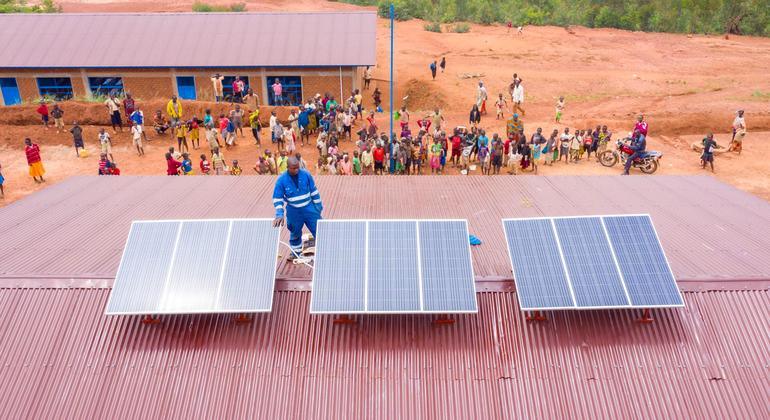While the speed of fundamental access to energy has increased since 2022, the current pace is inadequate to reach universal access by 2030, one of the UN goals of sustainable development (SDG), according to a report published by WHO and the partners this Wednesday.
The report highlights the role of cost-effectively distributed renewable energy-a combination of mini-grid and solar systems outside of grid-in accelerating energy access, especially as the populations that remain unflved, mostly live in remote, lower income and fragile areas.
Regional differences
“Despite progress in some parts of the world, the expansion of electricity and pure cooking access is disappointingly slow, especially in Africa,” said Fatih Birol, CEO of International Energy Agency (IEA), as 85 percent of the global population without electricity access is resident in Africa south of the Sahara.
In the region, the implementation of renewable energy is quickly expanded; However, on average, it remains limited to 40 watts installed capacity per day. Per capita – only one eighth of the average in other developing countries.
Pure cooking
When regional differences persist, an estimated 1.5 billion people who reside in rural areas still lack access to pure cooking, while over two billion people remain dependent on polluting and dangerous fuels such as firewood and coal for their cooking needs.
Nevertheless, the use of pure technologies outside of grid, such as household biogas plants and mini-grids that enable electrical cooking, can offer solutions that reduce health effects caused by household air pollution.
“The same pollutants that poisoning our planet also poison people who contribute to millions of deaths every year from cardiovascular and respiratory diseases, especially among the most vulnerable, including women and children,” said Tedro’s Ghebreyesus, as Director General.
Lack of financing
The report identified the lack of sufficient and affordable funding as an important cause of regional inequalities and slow progress.
While international public economic streams to developing countries in support of clean energy have risen since 2022, developing countries received significantly fewer currents in 2023 than in 2016.
“This year’s report shows that now is the time to meet to build on existing results and scale up our efforts,” said Stefan Schweinfest, director of the UN Statistics Department, as the report called for strengthening international cooperation between the public and private sector to upset financial support to developing countries, especially in SAF-Saharan Africa.



